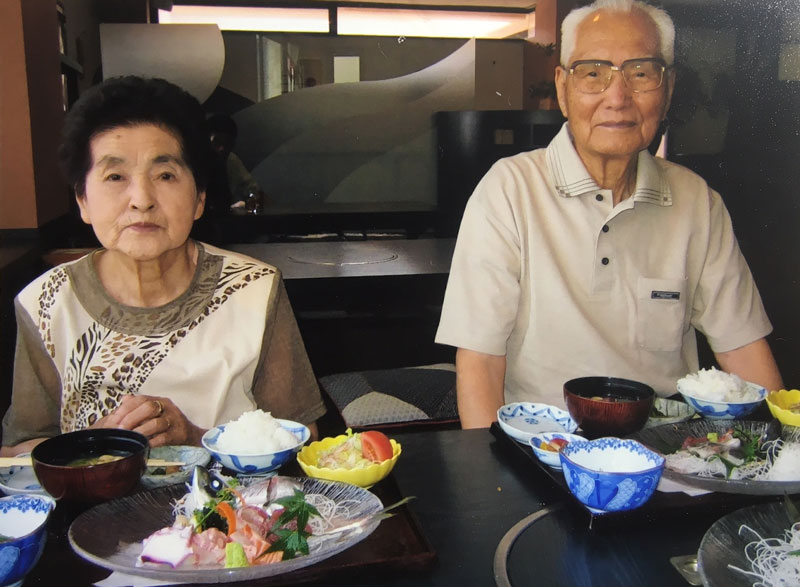“I’ll live until 100, you wait and see!” said Ojiichan (my grandfather), with a toothless smile on his face from his hospital bed.
This was after he asked me about current events in America. I had just flown in from America the night before and knew nothing about what was going on.
Ojiichan passed away over seven years ago. He did not quite make it to 100, but he was the wisest person I’ve known.
My grandfather fought in the Japanese army during the Second Sino-Japanese War (1937-1945). When he was in French Indochina, he caught malaria. He was flown back to Japan to stay at a Japanese military hospital until he fully recovered. By then, World War II was over and his family had arranged for him to marry my grandmother.
Ojiichan was the eldest of four children. His father was the owner of a fish market. He learned how to slice open a fish, serve it raw or dried, or cook it just right. His siblings ended up working in the same industry as their father.
Grandfather, though, had other plans. He voluntarily joined the Japanese army and traveled abroad, then became a “salaryman” after he got married. He worked as a manager for a housing company and moved his family to Kamakura, in a house close to the ocean, for 11 years. It is clear that Ojiichan’s openness to new things got passed onto his son (my father), who then passed it on to me.
Everything Ojiichan did, he did with care. From handling raw fish to teaching me Japanese calligraphy, he was very precise and detail-oriented.
“Hitotsu, futatsu, mittsu” Ojiichan counted in a slow, singsong voice, when we took baths together when I was little. [One, two, three…]
He taught me how to count to ten in traditional Japanese. He helped me get accustomed to the steaming hot water in what seemed like a way too deep Japanese bathtub.
As Ojiichan grew older, he developed hearing problems and his weak physical body caused him to end up in the hospital multiple times. However, his mind was always sharp. Grandfather read newspapers every day and never ceased educating himself about the world.
Grandfather never spoke ill of China, the United States, nor any other foreign country. He did not speak about the war unless he was asked and he mostly just stated that he was in the Japanese army. I only found out about Ojiichan fighting in Manchuria and French Indochina after I recently asked my father.
When I think about grandfather, I am reminded to continue to read and learn something new every day. He taught me to educate myself first – before I judge or say unnecessary things and to not be afraid of being adventurous, as there is always a way that will make things less scary.
In honor of Ojiichan, I strive to live my life carefully, perhaps until 100 years old.
Megumi Ito is the newest Omoide writing group member. She is a Kibei — she was born in southern California but moved to Shizuoka prefecture, Japan, as a child. Megumi returned to the US for college. She earned a bachelor’s degree in linguistics and a master’s in TESOL (Teaching English to Speakers of Other Languages). After college, she first worked in the tourism and hospitality industry and lived in different cities, states, and countries. Previously a public school teacher in New York City, Megumi now teaches Japanese and French at a public high school in Pierce County.







